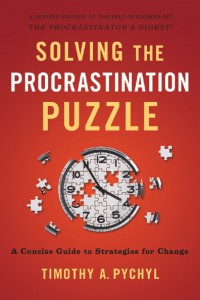Sorry, but homework really does matter.
Annoying, yes. Boring, usually. Important for your academic success? Very much so.
See below for some important reasons why you probably should be doing your homework. Continue reading
Annoying, yes. Boring, usually. Important for your academic success? Very much so.
See below for some important reasons why you probably should be doing your homework. Continue reading
 While it is best to retain information through a comprehensive understanding of the subject matter at hand,
While it is best to retain information through a comprehensive understanding of the subject matter at hand,sometimes that’s asking too much.
Particularly for young students who cannot yet choose their field of study, passing a test might call for some rigorous and effective memorization. The A+ Club from School4Schools.com LLC helps students learn the executive function skills many lack through our online tutoring and mentoring programs in a variety of subjects. Expert educators also offer advice and strategies, such as the following memorization tips, to help students help themselves.
Check out some of The A+ Club’s tips for retaining information: Continue reading
 Real solutions for procrastination from Dr. Timothy A. Pychyl, part 2
Real solutions for procrastination from Dr. Timothy A. Pychyl, part 2Student Success Podcast No. 14, Jan. 22, 2014, recorded Jan 15, 2014
Today’s Guest: Timothy A. Pychyl, Ph.D.
Dr. Pychyl shares his incredible knowledge, experience, research, and insight into the nature of procrastination and how to overcome it. Dedicated to bettering people’s lives, he uniquely applies academic concepts in a way we can all understand and appreciate.
This is part 2 of 2 segments we are publishing on the Student Success Podcast. Tim has also published his own version of the interview on his “iProcrastinate” podcast. Continue reading
 So if you don’t feel like it now, when will you?
So if you don’t feel like it now, when will you?Here’s the problem: your mood won’t match your work, and the less work you do, the less your mood will guide you towards doing your work. The only way you’ll get to it now is through Procrastinator’s Panic, which isn’t the best thing.
Research proves that last minute work is less effective, less thorough, and more stressful than work completed on time and with consistent effort. It comes down to control: if you rely on the “cram” or the last-minute surge, you’re letting the work control you, not the other way around. Continue reading
You really can do something about procrastination.
If you think you “work best under pressure,” or if you think that “getting it done in the last minute” are good strategies, we beg you to think again. By definition, procrastination is any delay that causes harm. Last-minute work almost always could have been better with planning and earlier start.
These strategies will help: Continue reading
 Why are we teaching kids to use 1970s technology?
Why are we teaching kids to use 1970s technology?Ever hear of Day Timer? Yes, the personal agenda book still exists, but only for a few old school types. Except in schools, where the kids are supposed to use agenda books, and it’s all their damned fault if they don’t.
Seriously. At the A+ Club, we hear from teachers all the time that Johnny “just needs to do what all the other students do and write down the assignments in his agenda book.”
If it were up to me, every kid would have exchange email and Outlook working seamlessly on their computers, tablets, and phones, and everything they need to do would be posted there automatically. Continue reading
![urgent_msclipart_C900434758[1]](http://school4schools.com/blog/wp-content/uploads/2014/01/urgent_msclipart_C9004347581-150x150.png) Is it urgent enough yet?
Is it urgent enough yet?A student of ours mentioned that he couldn’t bring himself to getting some work done over the break, but the night before classes start again, he finally “got the urge” to finish it.
This got me thinking about that word, “urgent.” I never before associated it with an “urge,” which we normally think of as being a kind of desire, as opposed to something of necessity, or of immediate concern, you know, an “urgency.” Continue reading
 Procrastinators are motivated by deadlines.
Procrastinators are motivated by deadlines.Clarity and purpose, hard to find and easy to dismiss, now assemble at the last minute. Focus arrives, hard work ensues, and the job gets done.
That urgency at the last minute invigorates and inspires procrastinators. It’s almost exhilarating — and it is, because you’re getting the same brain-chemical reactions from “procrastinator’s panic” as you do from getting startled. Scientists call it ” CRF,” and it is a brain drug that is released at the panic of a deadline.
So what’s the problem? Well… every procrastinator knows it: you should have gotten that feeling of urgency a little sooner. Sometimes “last minute” means by the deadline. All too often, it’s after the deadline passed and turned into a “drop dead deadline.” But you got it done, so what’s the problem? Continue reading
 Beware the Daylight Saving! Sleep, rhythms and grades
Beware the Daylight Saving! Sleep, rhythms and gradesMy wife has long held a theory that life gets more difficult for students when the clock changes every November. The early sunset makes it dark and dreary, and the change itself messes up our daily rhythms and internal clocks. Well, it’s true. Check this out:
End of Daylight Saving Time can mean headaches for some
For some, the end of Daylight Saving Time means an extra hour of sleep. But for others it can mean a headache. Doctors say the time change can cause cluster headaches that can last as long as eight weeks. The portion of the brain that triggers these headaches also controls your body’s rhythms. Slight changes can throw off the rhythm, which can also happen when you switch time zones.
Yeah. Researchers have now also affirmed that join pain can predict the weather (How Your Knees Can Predict the Weather: Granny was right: Scientists find link between achy joints and the forecast) and that intuition is rational and often works (Moms know best: Doctors say ‘mother’s intuition’ is real).
Human beings, it seems, weren’t invented along with Edison’s light bulb or Al Gore’s internet. We’ve been experiencing and adapting to time, weather, seasons for, well, for a long time.
With the end of Daylight Saving (here for the Book of Knowledge, I mean, Wikipedia, entry; oh, and it’s “saving” not “savings”), we’re moving the clock back to the “normal” time that is supposedly lined up with the path of the sun. Actually, time itself isn’t made up by humans, but we need some way to measure it, thus sundials and clocks. High noon literally means when the sun is at it’s highest point in the sky, so that means that high noon is different across time zones. High noon here in Washington, DC, isn’t the same as high noon in, say, West Virginia, even though both are in the same time zone, both showing 12:00 noon at the same time.
Time zones were created by the railroad industry in order to coordinate train schedules across places with different actual times. So these, essentially, arbitrary “zones” were created so that passengers and shippers could know that the 5:00 am train from New York that arrives in Chicago at 7:00 pm New York actually took 14 hours, even though it arrived at Chicago at 6:00 Chicago time. Confusing enough? The point is that it’s all made up.
We could leave the clocks alone, but in order to interact with different places, we kinda need to know what time it is there. I think we should all just be on the same time, but that would mean that, if morning in New York is 5am, then morning in London would be a midnight, which would mean we’d have to change midnight in London to Noon. People would still get up when it’s light, or go partying when it’s dark, whether that’s 4:00, 16:00 or whatever. Instead, every local time follows the sun, with morning being morning by and midnight at midnight on the clock.
The reason for it is that humans need sleep. And when we mess with sleep, well, bad things happen.
Sleep is a fundamental part of those “cycles” of life that we experience on this planet. We go around the sun every time the earth spins 365 and a quarter times. And during every one of those spins of the earth we experience a certain amount of sunlight. Since the beginning, human beings have followed these natural, physical patterns of the earth and sun. A fundamental interaction to it is sleep.
Then along comes Thomas Edison and his light bulb. Now we can get more than a flickering flame to light our streets and homes, and we can remake the natural clock of the earth. A cost of this defiance of time, is sleep, and it can really mess with people. Please check out this site from the NIH: Brain Basics: Understanding Sleep, which explains the importance of sleep, its rhythms and cycles and some of the harm in messing with it.
I write all this to remind our students that sleep matters, and sleep can make or break your grades. Adults are always telling kids to “get some sleep,” and kids are always rebelling against that advice and staying up late. So many of the students in our program tells us about sleep issues: have too much home work to do, can’t get off the computer, and then falling asleep over homework or in class.
Sorry, kids, the science is working against you on this one. Electronics mess up your sleep cycles, the “need to text” or Tweet misplaces your priorities and cuts into your productivity. There are a thousand websites with advice on this, but please know you are impacted by your choices. Just this week, here’s another warning about how electronics can destroy a child’s sleep
Pediatricians Set Limits on Screen Time: The American Academy of Pediatrics’ New Guidelines on Children’s Use of Internet, TV, Cellphones, Videogames
Parents should ban electronic media during mealtimes and after bedtime as part of a comprehensive “family media use plan,” according to new recommendations from the American Academy of Pediatrics.
The influential new guidelines are being spurred by a growing recognition of kids’ nearly round-the-clock media consumption, which includes everything from television to texting and social media. “Excessive media use is associated with obesity, poor school performance, aggression and lack of sleep,” said Marjorie Hogan, co-author of the new policy and a pediatrician.
It may seem like parental nannying, but are you sure it’s not hurting your grades? Yes, sleep does matter. Please be aware of your habits and needs, and please do what you can to make them match.
– Michael
The A+ Club from School4Schools.com LLC, based in Arlington, VA, is dedicated to helping students across the U.S.A. meet their goals and find the academic success the want and deserve. Contact us here or call now to (703) 271-5334 to see how we can help.
“Hi, my name is Michael, and I’m a procrastinator…”
In our inaugural podcast, Gabriela Bromley, a neuroscience major at Simmons College, introduced to our listeners the relationship between procrastination and anxiety. I’m amazed by the insight – so simple, so obvious, but one that I had never considered before.
I asked a guidance counselor friend of mine about it. This professional’s ability to relate to and understand kids is extraordinary. “Wow,” she told me, “I’ll have to include that in my next student questionnaire.” Me, too.
When teaching, I always talked to kids about procrastination. I viewed it as an entirely rational choice and its opposite, getting things done right away, as, well, a bit freaky. Think about all the moral tales and quotes on it, starting with Thomas Jefferson’s, “Never put off till tomorrow what you can do today” or Aesop’s “The Grasshopper and the Ants” fable. If procrastination weren’t so normal, society wouldn’t lecture us about it so much.
Thankfully, Mark Twain comes in on our side: “Never put off until tomorrow what you can do the day after tomorrow.” Yep, there’s always another tomorrow, or so we hope. Yet even Twain gets serious and gives actual advice on how to beat the impulse to delay:
The secret of getting ahead is getting started. The secret of getting started is breaking your complex overwhelming tasks into small manageable tasks, and then starting on the first one.
It’s tough advice, no matter who it comes from, because just grasping the nature of some tasks sure can be “overwhelming.” And if we could just do that first step, wouldn’t we be doing the rest already? How are we going to start that first thing if the entire thing is scary, or if we are unsure and intimidated by it? Even more readily than putting off what we know we must do, we put off what we don’t understand how to do. Thank you, Gaby, for pointing this out!
Teachers: how many of your procrastinators just don’t know what to do? How many late papers or projects are late because the student was unsure and insecure about it, and not because they’re lazy or disengaged? Have you prepared your students for it? Have you identified their needs and concerns? It’s not so simple as “get it in on time,” anymore, is it?
It begs the question, however, that if we are anxious and unsure, how come we finally get to it at the hard deadline?
“If it weren’t for the last minute, I wouldn’t get anything done”- Anonymous
The reason that procrastinators posses infinite ability to focus and work long hours just before a deadline is because the task wasn’t clear to them until then. It was the deadline that forced the concentration and the courage that went missing before. We procrastinators need to build early that anxious deadline feeling, that scent of battle that finally pushes us to get it done at the last minute — only at the first minute, instead.
But this is, as they say,
“How soon ‘not now’ becomes ‘never.'” – Martin Luther King, Jr.
That and the Golden Rule, easier said than done. So what can we do about it? A couple thoughts, first, following Gabriela’s ideas about procrastination and anxiety, and the other following our core strategy of articulation at the A+ Club:
1. “Am I putting it off because I’m afraid of it?
From now on I will use Gaby’s dictum as the first question. Am I afraid? Or is it because I don’t know what to do? It’s so much easier to say “I can’t” than to get help. Again, a rational choice. But, we want to resolve this procrastination thing, not excuse it. So, instead:
2. Articulate: say it, track it, and get it done.
At the A+ Club , our view on overcoming procrastination and delay is to think about it, say it, and remind. The more you speak it the closer you are to getting it done. We call it “Articulation.” Say it, track it, and get it done.
Student procrastination is not about laziness. Not even procrastinators put off the things they enjoy. When students are inspired and engaged, they eagerly jump on the assignment and meet all the deadlines. Sure, procrastination is a matter of priorities — get off the phone, turn off the Xbox, and so on, but we prioritize what we best understand and believe in.
Maybe it’s time for us all to put off taking an honest look at procrastination.
– Michael
The A+ Club from School4Schools.com LLC, based in Arlington, VA, is dedicated to helping students across the U.S.A. meet their goals and find the academic success the want and deserve. Contact us here or call now to (703) 271-5334 to see how we can help.